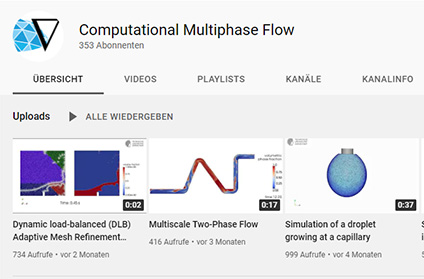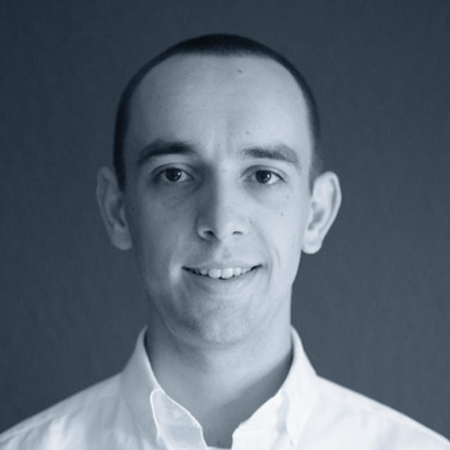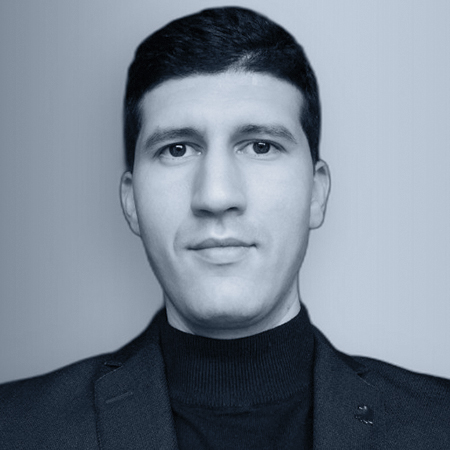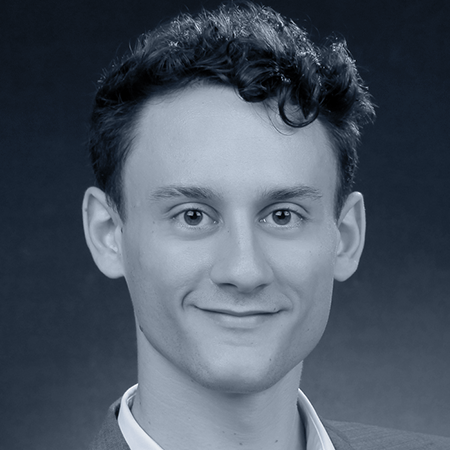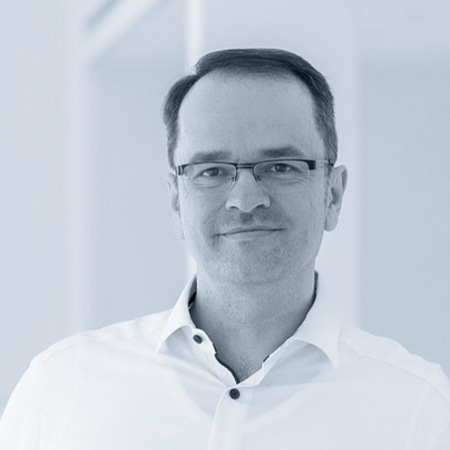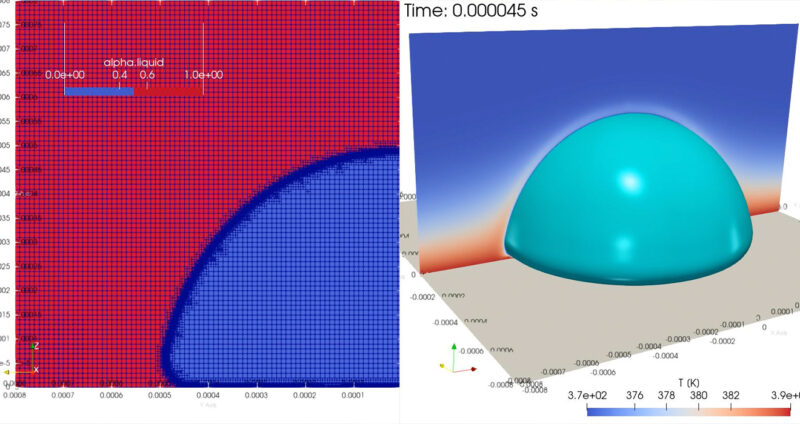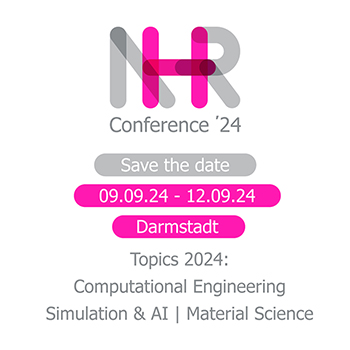11. March 2025
SDL Energy Conversion
and RWTH Aachen University
Simulation and Data Lab
The SDL Energy Conversion enables computationally efficient simulations of real-scale combustion devices by developing HPC-ready rCFD software and methods by a co-design process.
In the foreseeable future, combustion will still meet the major part of the world’s primary energy demand, but technologies will need to change for low-carbon and carbon-free energy conversion, using synthetic fuels as key contributors. System redesigns will have to heavily rely on high-performance reactive CFD (rCFD) with sophisticated numerics and accurate predictive physical models.
However, combustion applications are particularly challenging with respect to HPC due to the strong non-linearities and the large ranges of scales arising from the highly-coupled turbulence and chemistry interaction, the large number of partial differential equations for a detailed description of the multiscale phenomena, and the inherent multi-physics aspects.
The SDL Energy Conversion aims to enable computationally efficient simulations of real-scale combustion devices by developing HPC-ready rCFD software and methods by a co-design process.
Highly optimized numerical approaches are being developed, tested, validated, and packaged in different forms. Resulting HPC modules are being optimized for Tier-2 architectures, also providing efficient usage on Tier-1 machines.
Several simulation frameworks will be used, such as the direct numerical simulation (DNS) code CIAO developed at RWTH Aachen University and the open-source code OpenFOAM, customized for large-eddy simulations (LES) and 3D URANS combustion applications at TU Darmstadt. Modeling-, numerics-, and HPC-aspects will be addressed.
We will provide, for example, libraries for combustion data-driven models based on reduced manifolds in terms of tabulated functionals and Lagrangian methods for point particle transport useful for dispersed solid and liquid fuels, non-diffusive scalar transport, and transported probability density function-based combustion models.
Competencies
- Development of numerical methods for HPC architectures
- e.g., improving efficiency through load-balanced mesh-refinement
- e.g., porting the evaluation of chemical kinetics to GPUs
- Exploring the capabilities of AI-driven frameworks to enhance rCFD models
- e.g., generative networks for SGS modeling
- e.g., ANN for chemistry closure
- Leverage CPU- and GPU-based software
- Work centered around community-established open-source codes
- Expertise in conducting high-fidelity and large-scale numerical simulations
Current research topics
- Data-driven combustion modeling for laminar and turbulent flames
- Data-driven turbulence modeling for Large Eddy Simulations
- Evaluation of chemical kinetics and transport properties on heterogeneous architectures
- Development of Fortran-Python interface for machine learning (ML) inference on CPUs in collaboration with CSG Parallelism and Performance
- Inference of ML-based combustion models using GPUs in collaboration with CSG Parallelism and Performance
Activities
- Developed tools
- Load-balanced AMR library for OpenFOAM
- GPU-capable chemical kinetics library
- Modular library to accelerate both training and inference-coupled AI simulations
- High-fidelity numerical simulations
- DNS and LES of sustainable combustion systems to promote physical understanding
- Creation of openly available datasets
- Offered training courses
Gallery
Project partners
- Center of Excellence in Combustion (EuroHPC JU H2020)
- exaFOAM (EuroHPC JU H2020)
- CRC TRR 150
- CRC 129
- CRC 1194
- DFG FOR 2687
Members
Publications
2025
- Parallel implementation and performance of super-resolution generative adversarial network turbulence models for large-eddy simulation (Ludovico Nista, Christoph D. K. Schuhmann, Peicho Petkov, Valentin Pavlov, Temistocle Grenga, Jonathan F. MacArt, Antonio Attili, Stoyan Markov, Heinz Pitsch, Computers & Fluids.
- Extrapolation Performance of Convolutional Neural Network-Based Combustion Models for Large-Eddy Simulation: Influence of Reynolds Number, Filter Kernel and Filter Size (Geveen Arumapperuma, Nicola Sorace, Matthew Jansen, Oliver Bladek, Ludovico Nista, Shreyans Sakhare, Lukas Berger, Heinz Pitsch, Temistocle Grenga, Antonio Attili), Flow, Turbulence and Combustion.
2024
- Influence of adversarial training for super-resolution models (Ludovico Nista, Heinz Pitsch, Christoph D. K. Schumann, Mathis Bode, Temistocle Grenga, Jonathan F. MacArt, Antonio Attili), Physics Review Fluids.
- Can flamelet manifolds capture the interactions of thermo-diffusive instabilities and turbulence in lean hydrogen flames? – An a-priori analysis (Hannes Böttler, Driss Kaddar, Jeremy Karpowski, Federica Ferraro, Arne Scholtissek, Hendrik Nicolai, Christian Hasse), International Journal of Hydrogen Energy.
- multiRegionFoam – A Unified Multiphysics Framework for Multi-Region Coupled Continuum-Physical Problems (Heba Alkafri, Constantin Habes, Mohammed Elwardi Fadeli, Steffen Hess, Steven B. Beale, Shidong Zhang, Hrvoje Jasak, Holger Marschall), arXiv preprint.
- Scalar mass conservation in LES of soot formation using mixturefraction-based combustion models (Marco Davidovic, Heinz Pitsch), Proceedings of the Combustion Institute.
2023
- Investigation of the generalization capability of a generative adversarial network for large eddy simulation of turbulent premixed reacting flows (Ludovico Nista, Christoph Schumann, Temistocle Grenga, Antonio Attili, Heinz Pitsch), Proceedings of the Combustion Institute.
- Application of dense neural networks for manifold-based modeling of flame-wall interactions (Julian, Bissantz, Jeremy Karpowski, Matthias Steinhausen, Yujuan Luo, Federica Ferraro, Arne Scholtissek, Christian Hasse, Luc Vervish), Applications in Energy and Combustion Science.
- Combined effects of heat loss and curvature on turbulent flame-wall interaction in a premixed dimethyl ether/air flame (Driss Kaddar, Matthias Steinhausen, Thorsten Zirwes, Henning Bockhorn, Christian Hasse, Federica Ferraro), Proceedings of the Combustion Institute.
2022
- A Case Study on Coupling OpenFOAM with Different Machine Learning Frameworks (), 2022 IEEE/ACM International Workshop on Artificial Intelligence and Machine Learning for Scientific Applications (AI4S).
SDL Energy Conversion News
High-Speed for Simulations
28. August 2024
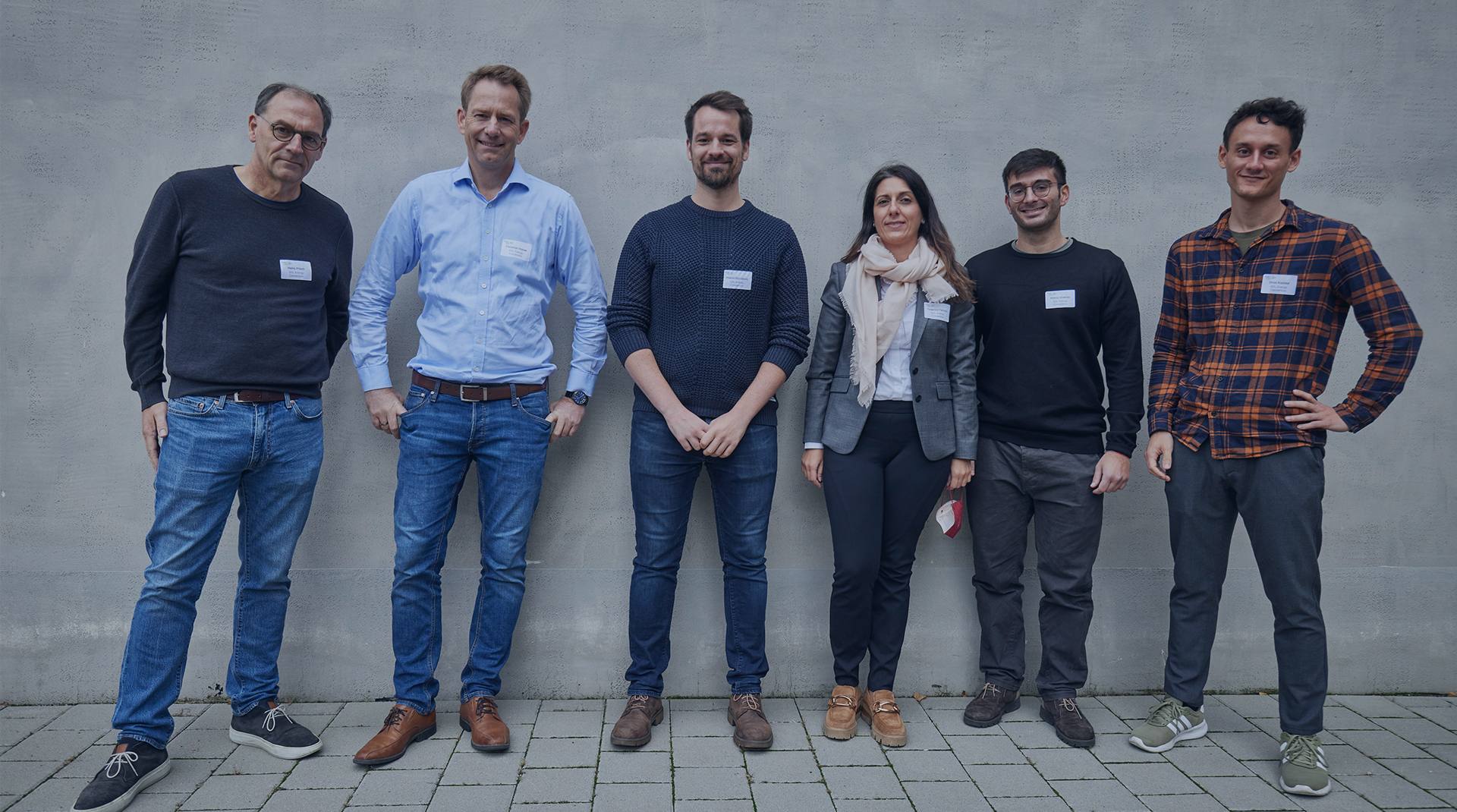
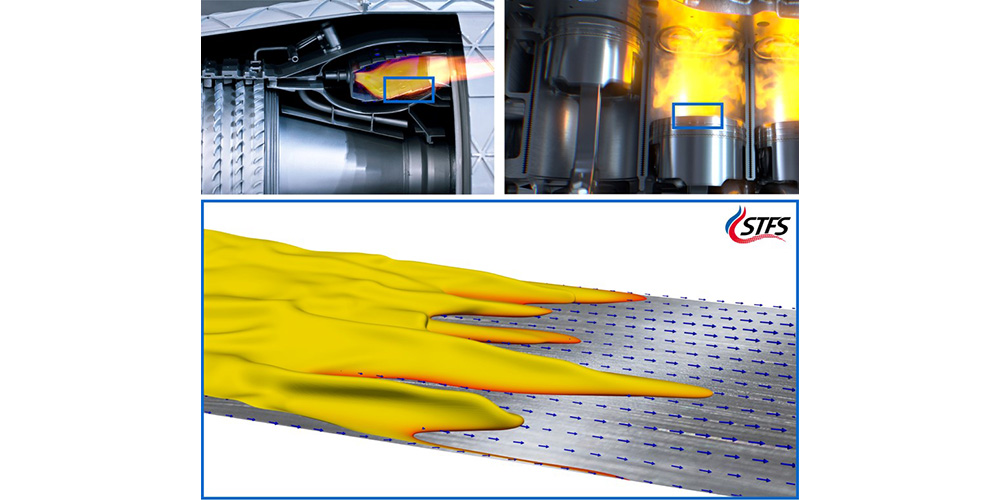 Turbulent Flame-Wall interaction under Creative Commons Attribution-NonCommercial 4.0 (© M. Steinhausen, TU Darmstadt)
Turbulent Flame-Wall interaction under Creative Commons Attribution-NonCommercial 4.0 (© M. Steinhausen, TU Darmstadt)  Two-dimensional simulation of thermodiffusively unstable, lean, premixed hydrogen flame (© L. Berger, RWTH)
Two-dimensional simulation of thermodiffusively unstable, lean, premixed hydrogen flame (© L. Berger, RWTH) 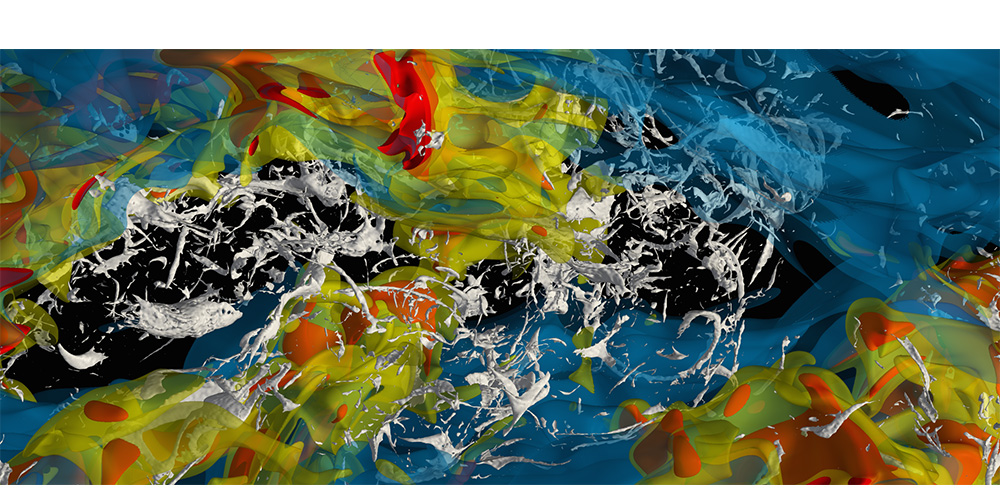 Three-dimensional simulation of a turbulent sooting flame (© A. Attili, RWTH)
Three-dimensional simulation of a turbulent sooting flame (© A. Attili, RWTH) 